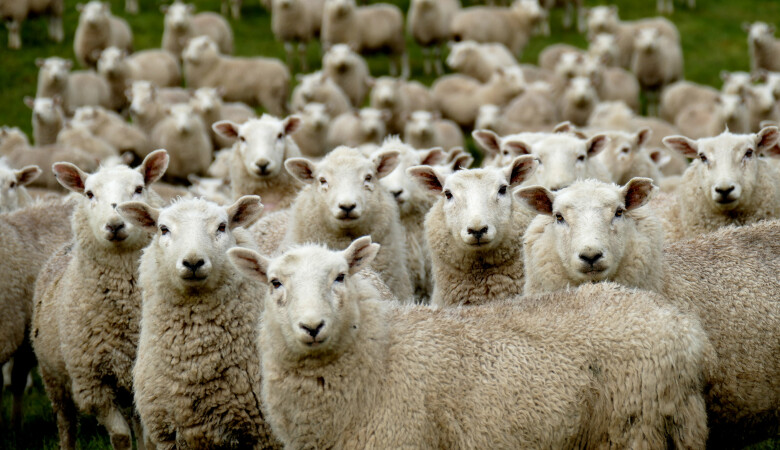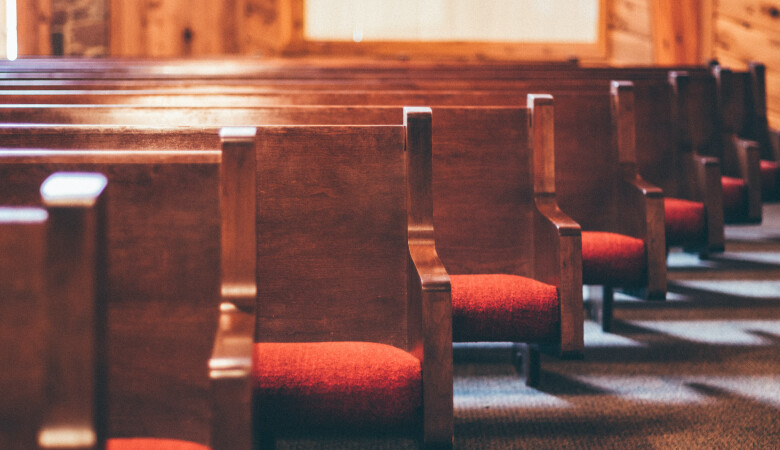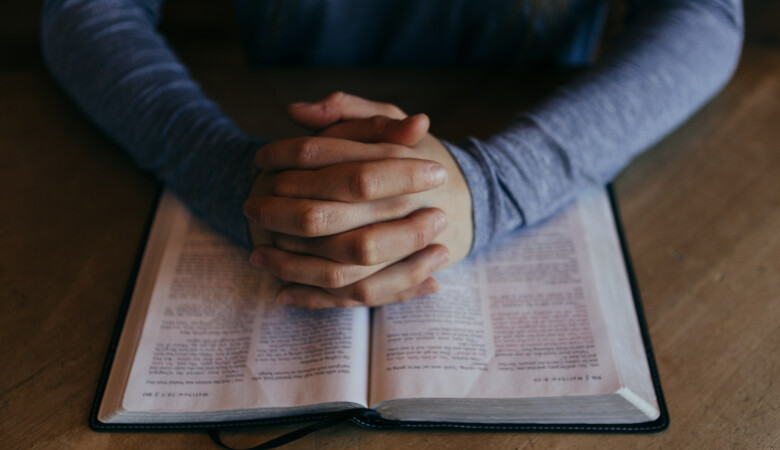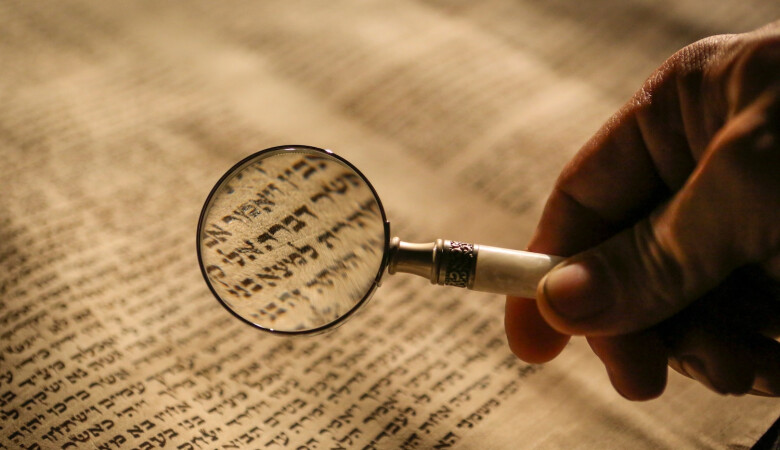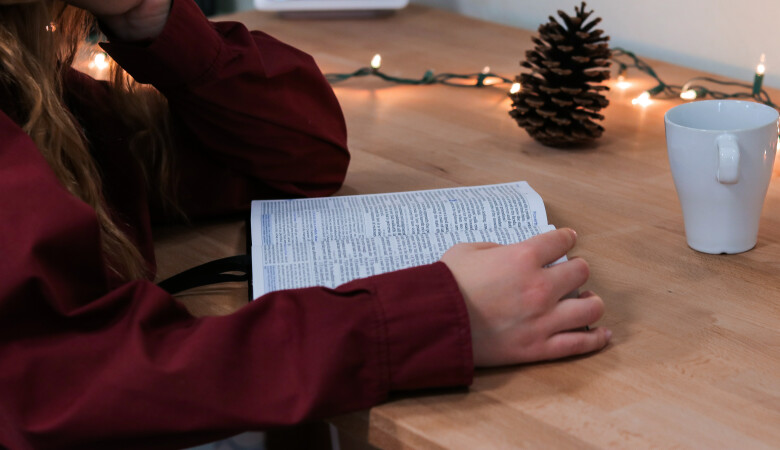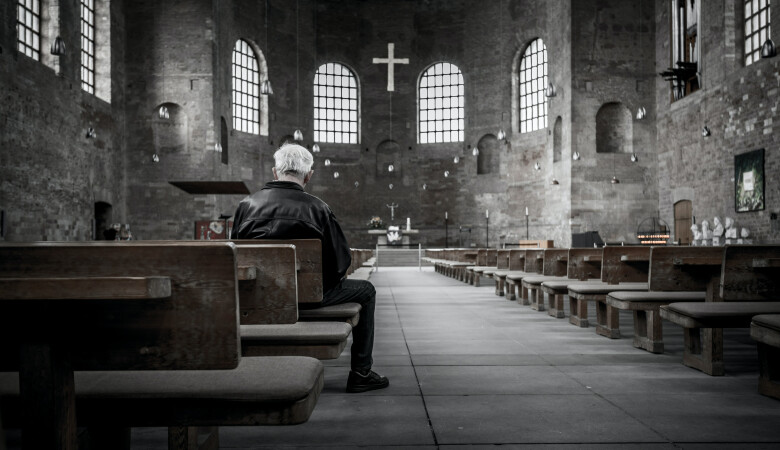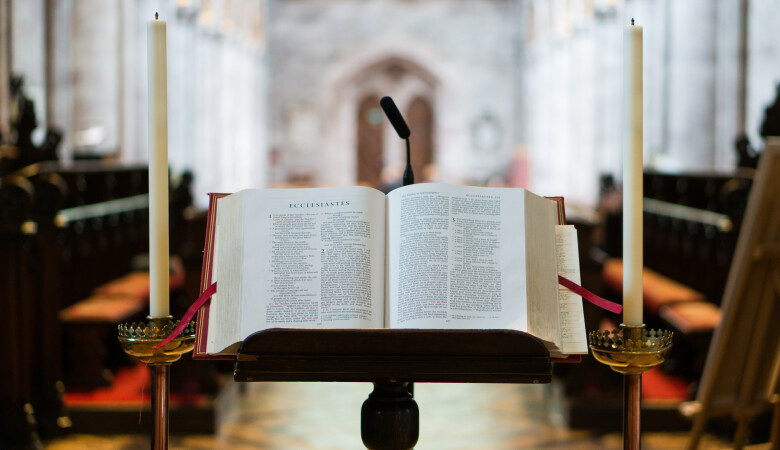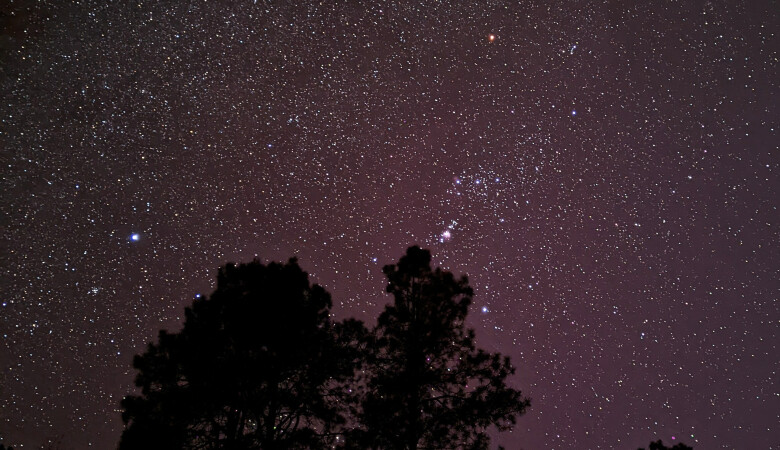The Sheep and the Goats
May 26, 2002 | Andy Davis
Matthew 25:31-46
Judgement Day, The Kingdom of Christ, Hospitality
Pastor Andy Davis preached on Matthew 25:31–46, and reminds us that Christians ought to care for those in need, including refugees.
- SERMON TRANSCRIPT -
I have not forgotten that Habakkuk has three chapters. God willing, we're going to get back to it next time. But I felt specifically led by the Lord this morning to step out of Habakkuk, out of the series of Habakkuk and look at Matthew 25; and the reason for that, as you probably have figured out, is my conviction, a sense that I have from God, that he's leading First Baptist Church to take responsibility for some of the refugees that are coming to us from Vietnam. I mentioned them last time, and it's appropriate that now at Memorial Day weekend, we can think about them, because I believe that there's a connection between the sacrifices and the commitment of the Montagnard hill tribes and the persecution and suffering that went on concerning them after the American forces left in 1975. The Montagnards are tribal people that live in the central hill in mountainous country of Vietnam, and, during the Vietnam War, they gave aid and care to Special Service Forces of the American Army, they cared for them. And I think it's interesting that they extended the hospitality that's mentioned here in Matthew 25, I was a stranger and you invited me in. But after the government - after we - left and the war ended, the government, the communist government, turned against them and began persecuting them viciously.
Now, when I first got news several weeks ago about the Montagnards, my initial thought was, “How can we care for people that are gonna have ongoing needs for the next six months?” It's beyond where we're at as a congregation. I began feeling inside my heart the way the disciples probably felt when Jesus said right before feeding the 5000, they said, "There's nothing out here for them to eat," they said to Jesus. And Jesus said, "They don't need to go away. You, you give them something to eat. And you begin to empty your pockets and you begin to look through and say, I don't have enough. And so, I immediately did what you're supposed to do in a situation like that, when you look inward and don't find the resources available, you fall to your knees and ask God to work. And it's in exactly those situations that God begins to show his power, isn't it? When we're beyond what we can do, when we're stepping out in a new area, when we're looking to a new kind of ministry that we haven't really done before, not a one-time gift, not a one-time thing, but a commitment that's going to take resources, it's gonna take sacrifice and love from people that are sitting and listening to me right now and from me.
When we're going off into a new area, that's where God can show his power, amen. And I think that God is calling us to trust him by faith. And so, I began to think of scriptures that were relevant; the letter that I read said that these were Christian people in the tribal areas, perhaps they were even Christian leaders, they are men that the Vietnamese Government wants out of their country, so they're probably leaders. And if they're Christians, they may even be pastors or house church leaders, who knows, I don't really know. But again, I began to do some research, and I found that Protestant churches and house churches had been doing very well in the tribal areas, the Central Highlands of Vietnam, and they'd been receiving persecution. And I looked back in one of my sermons that I preached in Daniel Chapter 6, on Shadrach, Meshach and Abednego, and I mentioned these very people at that time, a 15-year-old girl who said, "We've been persecuted and beaten up so much, we don't care anymore. The only thing we fear is disobeying God." And now, just a short time later, we have, I believe, the opportunity to minister to them directly.
I also thought about my experiences in 1987 when I was on the border between Pakistan and Afghanistan, and there were Afghan refugees streaming out of that war-torn country, the Russians were attacking them and gunning them down with helicopter gunships, and they had a look of terror on their faces, and we ministered to them, we brought them food and clothing. They had nothing except the terrifying memories of the previous several weeks, and deep anxiety in their hearts for loved ones that were lost. And I thought, to be a refugee like this has got to be one of the most terrifying and dismal circumstances that one could face in this world. And I thought, “What are the chances that people like us would have to minister directly to refugees?” Ordinarily none. But I felt mobilized, and I felt that our church needed to give and that we needed to step forward at this time. And this passage came to my mind, the sheep and the goats, and another as well. But I'm gonna focus on Matthew 25. Now, it has its problems, because to be honest with you, I don't really know for sure whether the eight people that we might commit ourselves to care for are believers in Jesus Christ or not. And the way that I interpret this passage, Jesus is intensely concerned for his sheep; that's the way I read it. And I'm gonna explain more about that, but as I worked it through, I began to understand how even still this passage applies even if they're not Christians.
Let's begin at the beginning of Verse 31. It says there, "When the Son of Man comes in his glory and all the angels with him... " This is speaking of the second coming of Jesus Christ. Jesus uses the term Son of Man to refer to himself. It's the same title he used for himself throughout his ministry in Matthew's Gospel, and it harkens back to the vision that Daniel had in Daniel Chapter 7 of the Son of Man. I don't know if you remember that vision, but in that vision, The Ancient of Days, God Almighty, is set up court and he's going to judge the world, and at that moment, one like a Son of Man comes into the presence of the Ancient of Days and receives from the Ancient of Days, glory and majesty, honor, and all nations come before the Son of Man and they worship and serve him. It is one of the great questions of modern Judaism, who is the Son of Man of Daniel 7? We know who he is. his name is Jesus Christ.
Now, in his ministry, Jesus alluded to the suffering of the Son of Man, that he would be beaten and scourged and put to death. And so, the suffering of the Son of Man is frequently in Jesus' mind, but here, we do not have the suffering in view, do we? We have the glory of the Son of Man, we have the glory of the eternal God, the very glory that Jesus prayed for in John 17, when he said, "Father, the time has come now, give me that glory I had with you before the world began." Now, there's a glory to the Kingdom of heaven now, isn't there? But you have to see it by faith, it's advancing secretly, and by faith, we can perceive the advance of the Gospel and the advance of the kingdom of God, but you don't need any faith to see this, do you? Because, "As lightning flashes from one side of the sky to the other, so will be the coming of the Son of Man," and all nations will see his glory, and you won't need any faith at that point, you will just see the glory of the Son of Man. And he's gonna come in his glory, and he's going to have with him an army of angels.
I think this is so powerful and so rich, isn't it? Because this is the very thing that Jesus would not call for when Peter drew his sword to protect him, you remember. Peter drew his sword and sought to protect Jesus from going to the cross, he sought to protect him from dying. "And Jesus said, 'Put your sword away, for all who draw the sword will die by the sword.'" Habakkuk 2, The law of the boomerang, right? The way you treat others is going to come back to you. My kingdom doesn't advance that way, Peter, put your sword away. If I were trying to avoid the cross, don't you think I could call on My Father and he would at once put at my disposal more than 12 legions of angels, but how then would the Scripture be fulfilled that say it must happen in this way? Jesus would rather die than break the prophecies that said that he would die for our sins. And so, he refused, he refrained from calling on his father, and the angels did not come at that point, but they're coming now.
When the Son of Man comes with all the myriad of myriad of angels, and they're coming to put an end to the cycle of human history, to put an end to the rise and fall of nations, to put an end I believe, to the anti-Christ's reign at that moment, the distilled form of human arrogance and evil as this man has set himself up to be worshipped in God's temple, and so Jesus returns and "with the breath of his mouth," 2nd Thessalonians 2, he slays him, and with him all of these angels and he establishes his glorious throne. The throne of his glory. He is a king, and, in our passage, it says twice "the king will reply," then "the king will say"; this is the King of the Kingdom of heaven - it is Jesus Christ. And so, he comes to set up his throne and all the angels are with him. And then the angels are sent out to gather all nations. And so, everyone that's ever lived from all history, from every tribe and language, and people and nation, all of them are gathered, and they're assembled before his throne, standing before him for judgment, for it is Judgment Day. And all authority and judgment has been committed to Jesus "…because he is the Son of Man," John Chapter 5. And so, they all assemble before him, and then he separates them, one from another, as a shepherd separates sheep from the goats.
Now, some people call this the parable of the sheep and the goats, but it is no parable - it is a prophecy. He just uses a simile or a metaphor for how the separation is going to go on, it's not a parable about sheep and goats. He said this is what's going to happen. This is a prophecy, is a prediction of what I will do. But he uses a metaphor that that agrarian society would have understood, the sheep and the goats have been all mingled together up to this point, but now he's going to separate them. And he's gonna put the sheep, his sheep, on his right hand, and he's gonna put the goats on the left, he's separating them out.
"Now, some people call this the parable of the sheep and the goats, but it is no parable - it is a prophecy."
Now, this is a recurring theme in Matthew's Gospel. It begins really with the preaching of John the Baptist. They asked him, John, if he was the Christ, and he said no, but, "there's one coming after me, more powerful than I, whose sandals, I'm not fit to untie. he will baptize you with the Holy Spirit and with fire." And then he says this, "His winnowing fork is in his hand, and he will clear his threshing floor, gathering up the wheat into his barn, but burning up the chaff with unquenchable fire." So preached John the Baptist, a separation between wheat and chaff.
Then Jesus himself told the parable, parable of the wheat and the weeds, or the wheat and the tares. He said, they both grow together, and both are to grow together until harvest time. Well, here in this text, it's harvest time. And we can't tell the difference sometimes between the wheat and the weeds, they look identical to us. And so, if we were to try to root out the weeds, which the evil one has planted, we might make a mistake and root up wheat also. And so, we're told to leave both together until the end. And then he will send out his angels and they will weed out of his kingdom everything that causes sin and all those who do evil, and there'll be a separation. And the wheat will be gathered in bundles and brought into the barn, but the weeds will be burned with unquenchable fire. He also said, "The Kingdom of heaven is like a net let down into a lake which caught all kinds of fish." And then they collected those good fish in baskets, but they threw the bad away; a separation therefore, between the wheat and the chaff, between the wheat and the weeds, between the good fish and the bad fish, there's a separation. And so, he puts his sheep on the right.
I think also of Jesus' statement in John Chapter 10, "I am the good shepherd, I know my sheep, and my sheep know me… and I give them eternal life, and no one can snatch them out of my hand." And those are the sheep that he puts on his right, but the goats are put in his left. "Then the King will say to those on his right" - I love this word – "'Come…'" You hear that word? Come. That's an invitation. Now, earlier in their life, they heard an invitation from Jesus, didn't they? Remember when Jesus was walking by the Sea of Galilee, and he saw Peter, John, James, and Andrew fishing by the net, and what did he say? "Come, come follow me and I will make you fishers of men." And then in Matthew 11:28, he says, "Come to me, all you who are weary and burdened, and I will give you rest." And so, at some point in their lives, these sheep heard him say this to them, they heard him say, "Come", and they came. They responded by faith because they were his sheep, and they recognized his voice, and they followed him, they would not follow the voice of another, but they followed him. And so, they came, they came to faith in Christ.
Now, he's inviting them into their eternal inheritance, "Come," he says, "You who are blessed by my Father, take your inheritance, the kingdom prepared for you since the creation of the world." He gives them then the final invitation to come, to enter the kingdom, to sit at the banquet and eat with him, come. And what does he say? "Come, you who are blessed by my father", what a rich word is that? They did not earn their salvation. Don't misunderstand this passage. Because in a moment, he's gonna say, "For I was hungry and you gave me something to eat." Don't think that they're saved by works. They are not. They're saved by faith in his blood. They're saved because Jesus in the next chapter said, "Drink from it, all of you. This is the cup of my blood, which is poured out for many for the forgiveness of sins." Only by the blood of Jesus Christ will these sheep be entering into their eternal inheritance. They're not saved by works. They are blessed by the father. For it says, "Blessed are the spiritual beggars, the poor in spirit, for theirs is the Kingdom of heaven." They were blessed by the father. Also, Jesus in Caesarea Philippi speaks to his disciples, "'Who do people say the Son of Man is?' … 'Some say John the Baptist, Elijah, one of the prophets.' 'What about you? Who do you say that I am?'" And Peter speaks up and says, "You are the Christ, the Son of the Living God." Do you remember what Jesus said next to Peter? "Blessed are you, Simon, son of Jonah, for this was not revealed to you by man but by my Father in heaven." So, at some point in life, these sheep had been blessed by that blessing. They had been blessed by the Father to recognize that Jesus was not merely a prophet or a good man or a dusty figure from history, but rather that he was the eternal God in the flesh. And it was revealed by the father directly to their hearts, and they had faith, and his blood cleansed them from all their sins.
But the earthly blessings of the kingdom are insufficient, are they not? Paul said that. He said, "If for this life only, we have trusted in Christ, we are above all men to be pitied." It's a life of suffering, distress and toil, a life in which God sustains you from within, it's not a life of ease and comfort, it's not a life of luxury, it's a life of sustaining grace until the final inheritance comes. The blessings of the earthly experience of the kingdom of God are insufficient. There is instead an eternal blessing, because the Apostle Paul said, "Praise be to the God and Father of our Lord Jesus Christ, who has blessed us in the heavenly realms with every spiritual blessing." All of them are ours in Christ, we just don't have them yet, instead, we have a down payment, the Holy Spirit, a deposit guaranteeing what? Our inheritance, the time has come at last for the inheritance of the sheep.
So, he says, "Come, you who are blessed by my Father, take your inheritance, the kingdom prepared for you since the creation of the world." What an incredible thing that God has been crafting and working on the kingdom since the creation of the world? And it's prepared for them, for the sheep, they been in his mind all along, and he's prepared his kingdom for them. And it's ready, it's prepared. It reminds me of what Jesus said in John 14. He said, "I go away to prepare a place for you. And if I prepare a place for you, I will do what? I will come back and take you to be with me so that you also may be where I am." And then he prayed in his prayer in John 17, "Father, I want those whom you have given me to be with me, where I am, and to see my glory." And so, this is the fulfillment now, he's come back to give them the kingdom and to invite them in.
And don't misunderstand the next word, "For I was hungry," he says. Their good works are not the reason that they are invited, rather they are the evidence of the saving faith that God had worked in their hearts, it's the evidence. It's not like we have salvation by works here, and then salvation by grace through faith in Christ everywhere in the Bible, not at all, but rather Judgment Day, this Judge is so adept at inspecting fruit that he can tell just by looking at how you lived, what happened in your heart. He can tell. "For I was hungry," he says, and "you gave me something to eat, I was thirsty and you gave me something to drink, I was a stranger and you invited me in, I needed clothes and you clothed me, I was sick, and you looked after me, I was in prison and you came to visit me," he says. Now, if you look at that list of works, it's work done to the physical body, aren't they? Simple works done to people in a variety of distressing circumstances, or do I say people? Well, we know what Jesus meant. I was hungry, I was thirsty, I was a stranger, I was sick and I was in prison. The righteous look at him and say, when did we do that? We didn't live in your days and the days of the Son of Man, and we sure didn't see you in your glory. When did we minister therefore directly to you?
Note what it says by the way, "Then the righteous will answer…" Who is righteous but God alone and those who get the gift of righteousness through faith in Christ? If you're listening to me today and you're not a believer in Jesus Christ, you have no righteousness of your own, I don't care how many good deeds you do. Jesus said in the same Gospel, "No one is good but God alone." And so only by the righteousness that comes to us as a gift through faith can we stand up under this judgment. But it does say, "the righteous will answer him, Lord, when did we see you hungry and feed you, or thirsty and give you something to drink? When did we see you a stranger and invite you in, or needed clothes and clothe you?When did we see you sick or in prison and help you?" And then the King replies, "I tell you the truth, whatever you did for one of the least of these brothers of mine, you did it to me."
Now, there's a limitation in the Bible, isn't there? We don't get to hear a tone of voice, we don't get to see facial expressions, and we don't get to see gestures, for example. Now, is the king gesturing to the whole group or is he just gesturing to his sheep, which is a key interpretation principle, isn't it? The Social Gospelers of 100 years ago, said his arms were stretched out wide, everybody is his brother. Three basic points of the Social Gospelers: number one, the universal fatherhood of God; number two, the universal brotherhood of man; and number three, the advancing Kingdom of heaven as defined by improving moral conditions on Earth, where poverty and other physical sufferings are alleviated gradually. That was the Social Gospel. Was Jesus a social gospeler? I think not. Scripture interprets Scripture, right? In Matthew's gospel, at one point, Jesus’ mother and brothers came to see him, Jesus was surrounded by a huge throng, and they couldn't get in, so they sent a messenger, your mother and brothers are here to see you. He said, "Who are my mother, and who are my brothers? Pointing to his disciples, he said, here are my mother and my brothers. For everyone who hears and obeys the will of my heavenly father is my brother, and sister, and mother."
So, who did Jesus gesture to when he said, "Whatever you did for one of the least of these brothers of mine, you did it for me"? He's gesturing to a sheep. And it makes sense because there's an intimate connection between the head and the body. The body is on Earth, and it suffers, and it struggles, and it's persecuted, like in the hill country of Vietnam right now, suffering persecution at the hands of the government, suffering, fleeing their country. So much so that when Jesus confronts Saul, so much is there a connection between the head and the body, he said, "Saul, Saul, why do you persecute me?" You're hurting me. There's a connection between me and my people, and when you minister to them, you're ministering to me, and when you persecute them, you're persecuting me. Whatever you did for one of the least of these brothers of mine, you did it to me. Now, what that means, whatever to whoever, it means there's no insignificant actions, and there's no insignificant people. Do you see how that works? Even the smallest acts of righteousness done for his people, because they are his sheep, God rewards; "…even a cup of cold water…" he says in Matthew 10:42, he rewards it.
But now we have a problem. Are we been limited here to only minister to his sheep, are we only gonna minister to Christians? I've gone through back and forth on the Montagnards, there's a lot of Montagnards, many as a matter of fact. There are some house churches that are advancing powerful. There is no guarantee that the eight Montagnards that are gonna get off that plane are believers in Jesus Christ. Oh, well, then we don't need to care for them. Right. This passage is no longer applicable. Really? This is how I figure it. This is the end of the world. Everything's been made clear, right? It's the end of the story. What am I saying? I'm saying that believers in Jesus Christ are always seeking to minister to his sheep. Why do I say that? Because what would it profit a Montagnard refugee to gain a good room, good clothing, plenty to eat, English language skills, a good job and lose his eternal soul? What would it profit him? Aren't we hoping to minister to Christ sheep, that on that final day, they'll be among those that are gonna hear, "Come you who are blessed by my Father, take your inheritance, the kingdom prepared for you since the creation of the world," and they're gonna be invited in, rather than hearing the dreadful words, "Depart from me, you who are cursed into the eternal fire prepared for the devil and his angels, for I was hungry and you gave me nothing to eat, I was thirsty, you gave me nothing to drink, I was a stranger, and you did not invite me, I needed cloths, and you did not clothe me, I was sick and in prison, and you did not look after me"? And then they will answer, "Lord, when did we see you hungry and thirsty and a stranger and needing clothes and sick and in prison, and not help you?" And "Whatever you did not do for one of the least of these you did not do for me."
Look down with your eyes at the final verse of the section, Verse 46, "Then they will go away into eternal punishment, but the righteous to eternal life." Now, there is, I believe, a heresy crawling through even evangelicalism these days, that there is no eternal hell. Do you realize that if there's no eternal hell, by the logic of this verse 46, there's no eternal heaven either. There's a direct connection. These will go away into eternal punishment, but the righteous to eternal life. There's a marvelous balance here. There is, in fact, therefore a hell, Jesus warned of it many times. My hope is that all eight of those Montagnards, all 176 that are coming to the triangle region will be believers in Jesus Christ on this final day. But suppose they get off the plane and they're not believers yet, do we give up? No, we feed them, clothe them, care for them, and give them the Gospel. We preach the Gospel to them, why? Because we realize that ultimately what would it profit them to gain all these things and lose their soul? And so it was that after Jesus fed the 5000, they crossed to the other side, and they went and found him and said, "Lord, when did you get here?" And he said, "I tell you the truth, you didn't come because you saw a miraculous sign, you didn't come to believe in me, but because you ate the loaves and had your fill. Do not labor for the food that spoils, but for the food that lasts to eternal life, which the Son of Man will give you." Put your faith in Christ, and I'll give you food to eat for eternity. And so, what am I saying? This applies no matter what, because we're always hoping to minister to Christ's sheep, and we're not going to just feed them and clothe them as the Social Gospelers did. We're going to give them the eternal gospel. Now, if they get off that plane, and it turns out that they were persecuted House Church pastors, we will fellowship with them and learn from them, we'll find out what it's really like to suffer for Christ. We'll learn from them, and we'll minister to them as ministering directly to Jesus Christ.
"Do you realize that if there's no eternal hell, by the logic of this verse 46, there's no eternal heaven either. There's a direct connection. These will go away into eternal punishment, but the righteous to eternal life. "
Now, what is the application to the sermon? Well, you have it in your bulletin insert there, pull it out if you would. “Will you help First Baptist Church welcome the oppressed Montagnard refugees of Vietnam next month?” And then it says, “How can you be involved?” Do you see that? This is wonderful. I didn't have to write an application on my sermon, it's already in your bulletin. How can you be involved?
Well, number one, we need volunteers, we need 10 individuals to step forward and take certain positions of responsibility, not for six days or six weeks, but for six months, to step forward and say, I will, for example, be the head coordinator, I will oversee this whole thing, I will change the way I live for the next six months, I will give of my time and my energy and my gifts. I'm an administrator, I have that gift, and I feel called to do this, and I want to help. I'm gonna make calls to FBC people. Of course, all of you will be ready to help in some way after this sermon, you'll all be ready to say, “Yeah, I'm ready. I wanna help in any way I can. That was a key moment that morning, and I don't wanna live it again wrongly, I wanna be able to look up at him and say, I did help. I did something for you, Lord, I glorified You. I made a sacrifice. Love means nothing without sacrifice. I will.”
But we need people. So far, four of these 10 positions have been filled, we need all of them filled, all of them. We also need about $6000 to pay for all this. There's no money available, there's no line items in the budget for this, it's all going to come from my pocket and yours. But remember that everything we do for the Lord, even a cup of cold water, he will never forget. And we store up treasure in heaven. We need the money, we need the efforts, we need prayer. We pray that God will raise up the resources needed to care for the Montagnards and for the salvation of those who do know Christ. And we need all of these things in the next three or four weeks. And so, I'm asking that any of you who feel led, and feel called to get involved in this, to come and meet me in the Betsy Cheek Chapel - since the parlor's not finished yet. But in the Betsy Cheek Chapel after the service and just - I'm gonna listen to you, I'll read over these things and say, “Is there anybody here who can do this, anybody here who can do that? Step forward.” And if you're not able to help immediately, be ready to help when these others ask you and give you calls.
The Montagnards are just eight people, I would like this to be somewhat of a new era, a new moment in the history of First Baptist Church. Up to this point, frequently when opportunities to minister come, people tend to sit back passively and wait to be asked and challenged rather than say, What are my gifts, and stepping forward and saying, I want to serve in this way or that way. It's not true of everybody, but it tends to be true. And I'd like each person therefore sitting in the pews today to think What is my ministry here at First Baptist Church? Driving in the car and coming to worship on Sunday morning and listening and singing and going home is not a ministry. You are being fed, you are receiving, alright. But using your spiritual gifts in a creative outreaching and in-reaching ministry that helps the body of Christ grow to its full maturity now, that is a ministry. What is your ministry? Jesus is coming back. I don't know if he's coming back today, but he's coming back, and what we read today is not a parable, it's going to happen. Let's be ready for it.
Won't you close with me in prayer? As you bow your heads, I want you to think, how, Lord are you calling me to act, given this information? God, what is my ministry, what are my gifts? How can I give? How can I give financially, but also how can I give of what's even more precious, myself my time? How can I give to this? I want you to act based on how God is leading you today.
Heavenly Father, as we bow before you, we acknowledge the glory and greatness of your son Jesus Christ. And we thank You for his coming kingdom in all of its glory. And I thank you for the Word that you've given us here, whereby you explained what the life looks like of those that are justified by faith, and we see that the works pour out into ministry, physical ministry, that can be seen and felt, in which we open our hearts and take of our resources and bless those that need it. Father, I pray for us that we would hear and heed. Father, I pray if there are any here today who have never trusted Christ, that they would realize they don't need to go off and do good works right now, they need to trust and believe in Jesus Christ for the forgiveness of their sins. For the rest of us, Lord, I pray that that Betsy Cheek Chapel will be filled with people ready to serve, as the scripture says, your troops will be willing in the day of your battle. We pray this in Jesus’ name. Amen.


